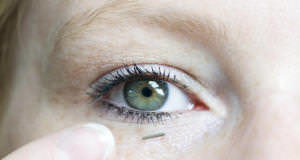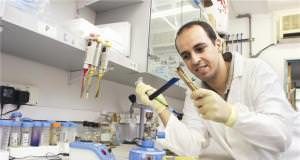Mini-Strokes Leave ‘Hidden’ Brain Damage
Each year, approximately 150,000 Canadians have a transient ischemic attack (TIA), sometimes known as a mini-stroke. New research published January 28 in Stroke, the journal of the American Heart Association shows these attacks may not be transient at all. They in fact create lasting damage to the brain.
‘Mini’ Stroke Can Cause Major Disability, May Warrant Clot-Busters
A transient ischemic attack, TIA or a "mini stroke," can lead to serious disability, but is frequently deemed by doctors too mild to treat, according to a study in the American Heart Association journal Stroke.
Popular Pain-Relieving Medicines Linked To Hearing Loss In Women
Headache? Back pain? At the first sign of pain, you might reach for a pain-relieving medicine to sooth your bodily woes. Analgesics are the most frequently used medications in the United States and are commonly used to treat a variety of medical conditions.
Cannabis Anti-Convulsant Shakes Up Epilepsy Treatment
The versatile cannabis plant may have a new use: it could be used to control epileptic seizures with fewer side effects than currently prescribed anti-convulsants. Ben Whalley at the University of Reading, UK, and colleagues worked with GW Pharmaceuticals in Wiltshire, UK, to investigate the anti-convulsant properties of cannabidivarin (CBDV), a little-studied chemical found in cannabis and some other plants.
Study of Giant Viruses Shakes Up Tree of Life
A new study of giant viruses supports the idea that viruses are ancient living organisms and not inanimate molecular remnants run amok, as some...
Biologists Find ‘Surprising’ Number of Unknown Viruses in Sewage
Though viruses are the most abundant life form on Earth, our knowledge of the viral universe is limited to a tiny fraction of the...
Measuring Glucose Without Needle Pricks
Pricking a finger everyday is just part of everyday life for many diabetes patients. A non-invasive measurement approach could release them from the constant pain of pin pricks. The linchpin is a biosensor engineered by Fraunhofer researchers: A tiny chip combines measurement and digital analysis -- and can be radioed to a mobile device.
Experts Recommend Screening Adults For Hypertriglyceridemia Every Five Years
The Endocrine Society today issued a Clinical Practice Guideline (CPG) for the diagnosis and treatment of hypertriglyceridemia. Triglycerides are a type of fat found in the blood and are associated with cardiovascular risk. The CPG, entitled "Evaluation and Treatment of Hypertriglyceridemia: An Endocrine Society Clinical Practice Guideline" appears in the September 2012 issue of the Journal of Clinical Endocrinology and Metabolism (JCEM), a publication of The Endocrine Society.
Even Small Weight Gains Raise Blood Pressure In College Students
As a college student, you may be happy simply not to have gained the "Freshman 15." But a University of Illinois study shows that as little as 1.5 pounds per year is enough to raise blood pressure in that age group, and the effect was worse for young women.
Even The Very Elderly And Frail Can Benefit From Exercise
A study carried out by Dr. Louis Bherer, PhD (Psychology), Laboratory Director and Researcher at the Institut universitaire de gériatrie de Montréal (IUGM), an institution affiliated with Université de Montréal, has shown that all seniors, even those considered frail, can enjoy the benefits of exercise in terms of their physical and cognitive faculties and quality of life and that these benefits appear after only three months.
A Carefully Scheduled High-Fat Diet Resets Metabolism And Prevents Obesity, Researchers...
New research from the Hebrew University of Jerusalem shows that a carefully scheduled high-fat diet can lead to a reduction in body weight and a unique metabolism in which ingested fats are not stored, but rather used for energy at times when no food is available.
Gene Linking Cataracts And Alzheimer’s Disease Identified
In a recent study, investigators at Boston University Schools of Medicine (BUSM) and Public Health (BUSPH) identified a gene linking age-related cataracts and Alzheimer's disease. The findings, published online in PLoS ONE, contribute to the growing body of evidence showing that these two diseases, both associated with increasing age, may share common etiologic factors.















